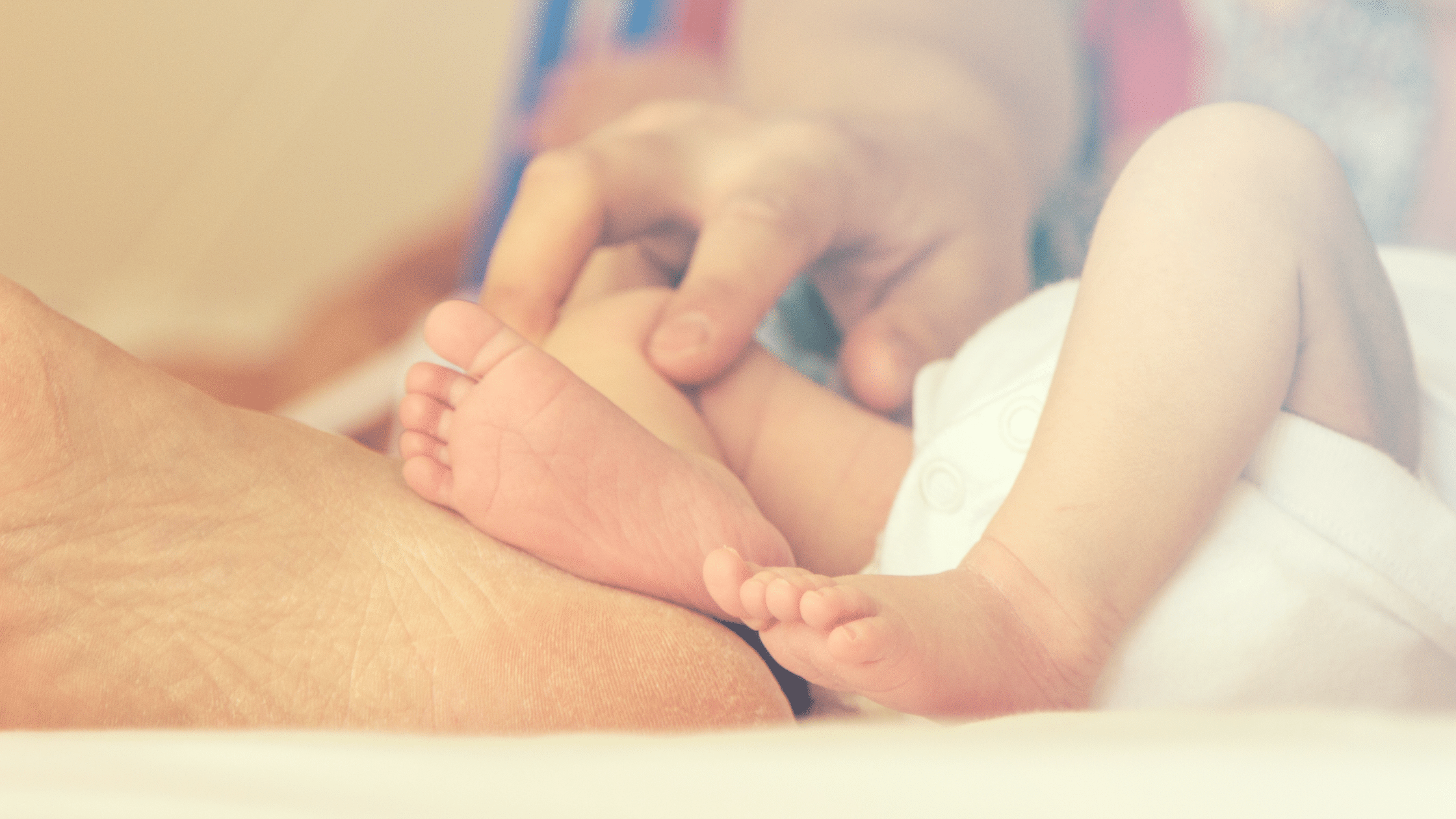Is it Postpartum Depression or Baby Blues?
To say having a baby is an emotional experience is an understatement. Excitement, joy, fear, overwhelm, sadness, frustration, confusion…the birth of a baby can bring any and all emotions. You may find yourself smiling and happy in one moment, only to begin sobbing uncontrollably the next. The rapidly changing hormones, sleep deprivation, and overwhelm can all contribute to the emotional roller coaster. These changing emotions can feel confusing, especially if you weren’t expecting them.
So, is it normal to cry and feel sad after you’ve had a baby? The answer is yes – it is normal to be tearful after having a new baby. However, it is important to understand the difference between the “baby blues” and “postpartum depression” as they need to be treated differently.
The Baby Blues
The baby blues are extremely common. Between 60% and 80% of new moms experience the baby blues, with symptoms lasting between two days and two weeks. The baby blues are not a mental health disorder but are a result of the hormonal fluctuations that occur after giving birth and the lack of sleep a newborn baby brings.
With the baby blues, you typically will experience the following symptoms:
Tearfulness
Rapidly changing mood swings
Reactiveness
Exhaustion
When you are experiencing the baby blues, you are still generally happy. Your self-esteem doesn’t change due to the baby blues, and underneath the tearfulness is still a feeling of happiness. The changes in emotions aren’t due to stress you are experiencing or from any previous mental health disorder, you may have experienced.
The biggest distinction between baby blues and postpartum depression is that the baby blues only last for a couple of weeks. There is also a difference in the intensity and severity of the symptoms and the duration that these occur.
When I gave birth to my first son, the hospital photographer had this beautiful lullaby playing on her computer while she showed us the pictures she had taken. As she displayed the gorgeous pictures of my newborn, the vocalist on the song began singing about welcoming a new baby to the world, and I completely lost it. I started sobbing uncontrollably, looking at these pictures set to the song playing in the background, to the point that I had to ask the photographer to turn the song off. Through the tears, I began laughing because I could recognize the humor of the moment and feel joy for my new baby, but I also just couldn’t stop crying.
This is a great example of the baby blues. I felt generally happy about the arrival of my new little one but still found myself extremely tearful. However, within two weeks, this tearfulness subsided. This is an example of the baby blues that many women experience in the early postpartum period due to hormonal changes.
Postpartum Depression
Postpartum depression is very similar to experiencing major depressive disorder, but with the distinction that the symptoms begin to occur either during pregnancy or after delivering the baby. While some of the symptoms may seem like baby blues, postpartum depression symptoms are more severe and last beyond the first two weeks after delivering your baby.
The symptoms of postpartum depression can look like:
Depressed mood most of the day
Losing interest in things
Significant weight or appetite changes
Sleep disturbances
Feeling worthless
Fatigue or loss of energy
Difficulty concentrating
Feelings of guilt
Recurring thoughts of death or suicide
It may feel hard to distinguish some of these symptoms from the general “symptoms” that occur with a new baby. Do I have trouble sleeping because I’m depressed or because I have a newborn keeping me up at night? Do I have zero energy because having a baby is exhausting or because I’m struggling with postpartum depression?
Postpartum depression may show up as:
Feeling like you can’t cope
Feeling overwhelmed
Not feeling connected to the baby
Struggling to take care of yourself, your family, and/or your baby
Withdrawing socially and wanting to isolate
Feeling easily agitated or irritable
Experiencing a sense of “I don’t feel like myself”
Developing physical symptoms such as headaches, back pain, or gastrointestinal issues
These symptoms of postpartum depression are more intense than what you experience with the baby blues and last long beyond the initial two weeks after you have a baby.
If you find yourself experiencing baby blues or postpartum depression symptoms, you can:
Talk to your OB-GYN. Don’t hesitate to let her know what you are feeling. She may want to discuss medication to help support you if it’s needed and she may be able to help refer you to mental health support.
Talk to your partner and family. Let your spouse or support person know what you are feeling. You may not know what you need from them to support you, but it is important to be open with them about what you are experiencing so that they can try and provide emotional and physical support to you.
Talk to a therapist. Motherhood is hard, and it is okay to need help. Talking with a therapist trained in working with women with postpartum depression can be extremely helpful. Your therapist can help you to process the thoughts and emotions you are having and help support you in your postpartum journey. It can feel challenging to try to make yourself a priority when you have a newborn demanding all your attention, which is why seeing a postpartum counselor for online therapy can be very beneficial. You won’t have to worry about trying to get out of the house or having childcare for your infant. You can search on Postpartum Support International’s website for a therapist who specializes in treating women with postpartum depression.
Get Postpartum Depression Treatment in Louisiana, Hawaii, or Colorado:
I am an online therapist who specializes in helping women with anxiety via online therapy. I am trained in providing postpartum depression treatment. I would be honored to help you navigate these challenges and the many others that accompany new motherhood. To begin online therapy in Louisiana, Hawaii, or Colorado, follow these steps:
Schedule your free, 15-minute consultation via phone or video call
Learn more about the ways I can help you in therapy
Begin the journey to finding relief from your anxiety so you can enjoy your life again!
Online Mental Health Services Offered By Ashley Comegys, LCSW
In addition to therapy for postpartum depression and postpartum anxiety, I provide a variety of online mental health services to residents of Louisiana, Colorado, and Hawaii. These include individual counseling for women, anxiety counseling, depression treatment, counseling for mothers, counseling for military spouses, and counseling for women who have survived trauma.
*Please note, as a licensed social worker, I am only able to see clients who are physically located in Hawaii, Louisiana, and Colorado.



